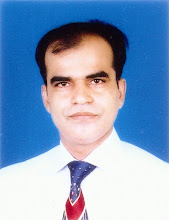Deccan Chronicle
Sept 14, 2008
In a couple of days we’ll probably have a better idea of the damage caused by the Saturday evening blasts in three important markets in the national capital.
We should by then also be able to make some sense of who the perpetrators might be, looking at the nature of the materials used and by the modus operandi of the terrorists.
Early reports suggest more than 10 people lost their lives and more than 80 were injured. Whether this is a coincidence or not, the Saturday blasts bear a striking resemblance to blasts in Delhi three years ago.
They occurred on the same day of the week and approximately the same hour of early evening. Perhaps this points to the fact that the terrorists expect ordinary people to be out shopping in large numbers on weekend evenings.
But whoever they are, the executors of evil designs against innocent people must be warned that they will be exposed in the not too distant future.
Already, several leading dramatis personae of previous terror attacks on prominent cities are finding the going tough. It is no use getting carried away by claims that terrorists make.
This is usually done to demoralise the authorities and the public, especially when the same agency seeks to appropriate credit on more than one occasion.
This is usually done to demoralise the authorities and the public, especially when the same agency seeks to appropriate credit on more than one occasion.
The intention is to plant the subconscious fear among ordinary people that those who plan to hit them are everywhere, while the providers of security are groping in the dark. These are pretty much standard psy-war techniques.
Ordinary folk should be encouraged to give them short shrift. Terrorist groups sometimes advertise themselves loudly with a view to registering their success with those that dispatched them.
This is a mercenary motive, of course. It is only when the initial impact of a terror attack simmers down and the early excitement abates that it is possible to dispassionately analyse an incident or a chain of events.
The Delhi blasts are also being taken credit for, and the name of a group popping up is the same that tried to foreground its claims on earlier occasions also. It may be no more than a paper front shielding the real culprits, or it may be the alias of another outfit.
Whatever the case, we should await proper identification before jumping to conclusions.
Since the primary purpose of terrorism is to jolt the morale of a people, and create in them a gripping sense of insecurity, as citizens we will do well not to direct suspicion against whole religious communities.
Since the primary purpose of terrorism is to jolt the morale of a people, and create in them a gripping sense of insecurity, as citizens we will do well not to direct suspicion against whole religious communities.
This is a communal reaction that demonises people only on the basis of their faith. The terrorists would have succeeded in their aims if they can elicit such a reaction from us, for the ultimate purpose of the enemy is to disturb the unity of a people.
The terror strike in Delhi should impel us to greater effort to establish a well-coordinated national agency to track and attack perpetrators of terror attacks. Such an agency will naturally need to have strong cooperative relations with police sleuths in the states.
This is because all of India is on the radar screen of those who think nothing of killing innocent people in order to advance their political aims.






